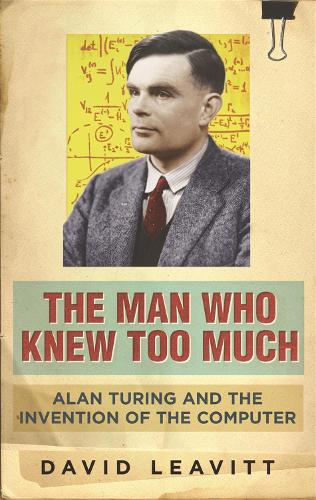
The Man Who Knew Too Much: Alan Turing and the invention of computers
(Paperback)
Publishing Details
The Man Who Knew Too Much: Alan Turing and the invention of computers
By (Author) David Leavitt
Orion Publishing Co
Weidenfeld & Nicolson
9th August 2007
1st June 2007
United Kingdom
Classifications
General
Fiction
509.2
Physical Properties
Paperback
336
Width 128mm, Height 196mm, Spine 30mm
260g
Description
To solve one of the great mathematical problems of his day, Alan Turing proposed an imaginary programmable calculating machine. But the idea of actually producing a 'Turing Machine' did not crystallize until he and his brilliant Bletchley Park colleagues built devices to crack the Nazi's Enigma code, thus ensuring the Allies' victory in World War II. In so doing, Turing became the champion of artificial intelligence, formulating the famous (and still unbeaten) Turing Test that challenges our ideas of human consciousness. But Turing's postwar computer-building was cut short when, as an openly gay man in a time when homosexuality was illegal in England, he was apprehended by the authorities and sentenced to a 'treatment' that amounted to chemical castration, leading to his suicide.
With a novelist's sensitivity, David Leavitt portrays Turing in all his humanity - his eccentricities, his brilliance, his fatal candor - while elegantly explaining his work and its implications.Reviews
"A sympathetic account of Turing's ultimately tragic life" Observer "Leavitt proovides fascinating insights into cryptography...he conveys both the ingenuity of Turing's creations and the complexity of the man" Daily Telegraph
Author Bio
David Leavitt is the author of several novels, including most recently The Body of Jonah Boyd, and story collections. He teaches creative writing at the University of Florida, Gainesville, where he lives.
